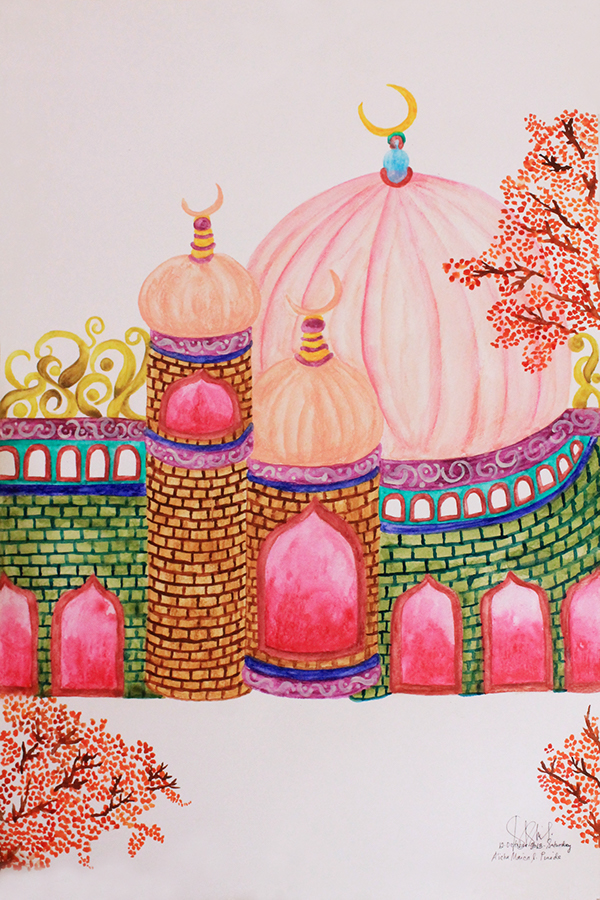When the Muhajirun (Emigrants) arrived in Madinah, they did not have enough money to support themselves so they were divided into groups of ten or twelve and were welcomed as guests of the families of the Ansar (Supporters). The Messenger of Allah صلى الله عليه وسلم stayed with Abu Ayyub al-Ansari رضي الله عنه. Abu Ayyub رضي الله عنه was not a rich man, but he did everything he could for the comfort of the Messenger of Allah صلى الله عليه وسلم and his party. Rasulullah's صلى الله عليه وسلم party had a few sheep. At night, they milked the sheep and drank it, saving some for those who were not present at the time.
One night, the Messenger of Allah صلى الله عليه وسلم arrived late at night and found no milk left for him. The Sahabah had not realized that Rasulullah صلى الله عليه وسلم had not had any. They felt bad for forgetting to save his share. Though Rasulullah صلى الله عليه وسلم never ate very much, that day he was especially hungry. He said, "O Allah, feed well the man who feeds me today."
Miqdad رضي الله عنه an Ansari heard this, and immediately spoke up, "O Rasulullah. I will slaughter my goat for you."
But Rasulullah صلى الله عليه وسلم said, "O Miqdad, please don't do that. Our need for milk each day is greater than our need for meat today."
When the Messenger of Allah صلى الله عليه وسلم tried to milk the sheep, just a little bit came out. He drank that, thanked Allah and went to sleep.
The Sahabah رضي الله عنه who were with Rasulullah صلى الله عليه وسلم that night felt sorry to see the Prophet صلى الله عليه وسلم go to sleep without food. They reported that Rasulullah صلى الله عليه وسلم said nothing and showed no anger about their inconsiderate behavior.
[Source: Musnad ibn Hanbal, Vol. VI]




